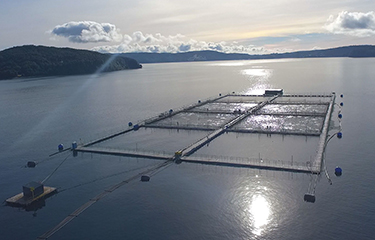Amid an already strained atmosphere, Ariel Espinoza, Chile’s acting undersecretary of the environment, may have ratcheted up tension between salmon industry players and contrasting politicians after the latest official communication from Espinoza’s office at the Chilean Environment Ministry.
One of the main points in the official letter, signed by Espinoza, states that “concessions may not be granted when a protected area, independent of its protection category, lacks a valid management plan, and the processing of such [a] procedure must be suspended … until the respective management plan is approved to evaluate its compatibility as required by the article in question.”
The letter complicates a situation in which the salmon industry and environmental activists are at loggerheads regarding existing farming operations.
Several salmon farms were legally established years ago in areas that subsequently became national parks or other protected zones, and since then, environmental authorities have forced these companies to limit operations or relocate. As for the latter option, the government has not issued a relocation permit in the past 12 years: Of about 500 applications, the government has rejected close to 200, and the rest are still undergoing processing – meaning that no relocations have occurred.
To the relief of the salmon industry, a joint congressional committee rejected a proposed modification to the country’s Biodiversity and Protected Areas Service (SBAP) law in June that would have prohibited new or renewed aquaculture concessions in protected areas.
The modification proposed barring the introduction of exotic hydrobiological species, including salmon, from such areas. The proposal brought immediate backlash from the salmon industry and workers relying on salmon farms operating in the areas. Chile’s salmon sector is responsible for the creation of some 70,000 jobs – many in rural areas – and supports more than 4,000 small- and medium-sized businesses, accounting for the equivalent of 18 percent of GDP in some rural areas.
Soon after the proposal thousands of salmon industry supporters took to the streets in protest – and lawmakers voted the measure down in response.
Tensions, meanwhile, have risen once again with the new letter from the environmental ministry.
Loreto Seguel, executive director of the Salmon Council, said that her group is analyzing ...
Photo courtesy of the Chilean Salmon Council








